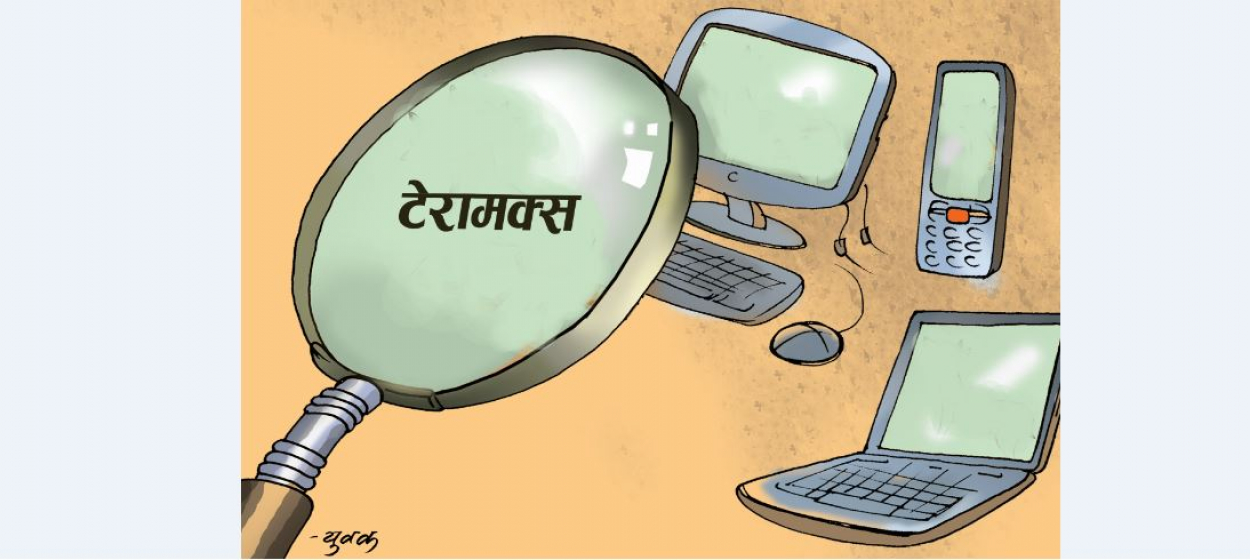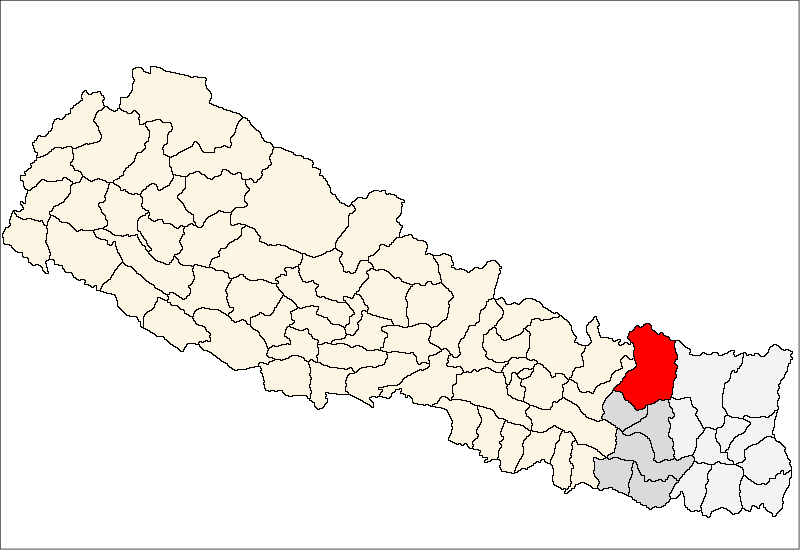
OR
Telecom service providers at odds over govt’s preparations to breach privacy rights
Published On: August 11, 2023 08:30 AM NPT By: Tapendra Karki

KATHMANDU, Aug 11: Ncell, a leading private telecommunication service provider of Nepal, has reportedly agreed to support the government's efforts to access highly confidential data of citizens in the name of controlling crime through new provisions. The Nepal Telecommunication Authority (NTA) had instructed Nepal Telecom and Ncell to immediately implement the Telecommunication Traffic Monitoring and Fraud Control System (TERAMOCS) effective from August 3.
Even though Ncell is ready to provide direct access to citizens' top secret SMS and call details to the government, the TERAMOCS technology has not been implemented yet because the state-owned Nepal Telecom did not agree to it.
“Ncell is ready to implement TERAMOCS technology but Nepal Telecom has refused," said Santosh Paudel, director and spokesperson of NTA. According to Paudel, even though Ncell readily accepted the government’s proposal, it is not clear why Nepal Telecom rejected it.
“The government has set its eyes on accessing confidential information of the citizens. It seems that Ncell is ready to help the authorities and the government by installing TERAMOCS technology,” said an official of the Ministry of Communications and Information Technology.
All kinds of records of customers of service providers connected to TERAMOCS technology such as records of messages written by one person to another, records of who called whom and what was said, are accessible, thereby violating the privacy of the individuals. But Paudel, the spokesperson of the authority, said that personal messages and calls will not be recorded. “This technology is only a call-bypass and in the interest of the customers. The allegation that calls will be recorded and messages will be directly accessed is false,” said spokesperson Paudel.
The NTA is waiting to implement the TERAMOCS technology simultaneously in both government and private telecom companies. According to an official of Nepal Telecom, because it analyzes call records (CDR), detects 'fraud', and checks the condition of voice traffic, Nepal Telecom has not shown interest in this technology. “This is not just about call detail analysis but also voice traffic which is a topic of discussion. Where is the issue of protecting confidential information of the customers? This will cause problems in the future,” said the telecom official. But the authority has claimed that there will be no impact on the privacy of citizens.
Two years ago, the telecommunications authority tried to implement TERAMOCS technology as soon as necessary materials including servers, mobiles and test kits were brought from Lebanon's Vanrise Solution Company for US$ 237 million (Rs 3.81 billion) in the first phase. After this technology is connected, it is said that all the records of the system of the service providers will be accessible. Although the authority introduced this technology to check the quality of voice, SMS and for monitoring data traffic as well as fraud detection, there is a legal barrier for its use. The official of Nepal Telecom said that NTA has written to Nepal Telecom to implement the TERAMOCS technology in order to have direct access to citizens' highly confidential call details, SMS and tariffs, but Nepal Telecom has replied that it will not follow the orders until the authority formulates required laws and procedures.
Paudel, the spokesperson of the NTA, said that it is not clear why Nepal Telecom is not ready to implement the TERAMOCS technology.
“We believe that it is necessary to implement this technology, but it has not been implemented yet. Ncell is ready but I don't know why Nepal Telecom is not ready," said NTA Spokesperson Paudel. He argued that since this technology is necessary to control crimes like call bypass, the two agencies have been instructed to connect the new system immediately. “This is important to prevent call bypass and tariff distortion,” said Director and Spokesperson Paudel.
The law related to this new technology is in the form of a draft at the ministry.
The government has courted controversy for making an attempt to get access to privacy without formulating laws.
Critics say that the topics such as sovereignty, national interest and crime have a broad meaning and can be interpreted according to the will of the government officials. In order to fully implement the TERAMOCS technology, the government has drafted the Bill to Amend and Unify the Laws Related to Telecommunications, 2079. If this Bill is passed by the Parliament in its current form, it will violate the rights of individuals regarding freedom and privacy.
Republica published a news article in this regard for the first time on 21 March 2023 under the headline 'Law to record conversations being introduced!’. The revelation caused widespread opposition inside and outside the parliament and the draft bill was put on hold.
After the bill could not move forward, the government pressed to implement this technology through the NTA. In section 77 of the draft bill prepared by the government, it is mentioned that 'By having direct access to the service provider's system, it will be possible to record the conversations of the relevant persons and install a mechanism using appropriate technology.'
You May Like This

Mysterious disease killing dogs in Norway
HELSINKI, Sept 8: Norwegian authorities haven’t been able to detect the cause behind an unexplained disease that is estimated to... Read More...

SC continues stay order on Ncell tax
KATHMANDU May 8: Giving continuity to the short-term stay order it issued on April 25, the Supreme Court Tuesday directed... Read More...

Ncell to organize Ncell Mela in four cities
KATHMANDU, Dec 12: Ncell Pvt Ltd has announced that its annual Ncell Mela will be organized in four major cities... Read More...




Just In
- NEA Provincial Office initiates contract termination process with six companies
- Nepal's ready-made garment exports soar to over 9 billion rupees
- Vote count update: UML candidate continues to maintain lead in Bajhang
- Govt to provide up to Rs 500,000 for building houses affected by natural calamities
- China announces implementation of free visa for Nepali citizens
- NEPSE gains 14.33 points, while daily turnover inclines to Rs 2.68 billion
- Tourists suffer after flight disruption due to adverse weather in Solukhumbu district
- Vote count update: NC maintains lead in Ilam-2













Leave A Comment